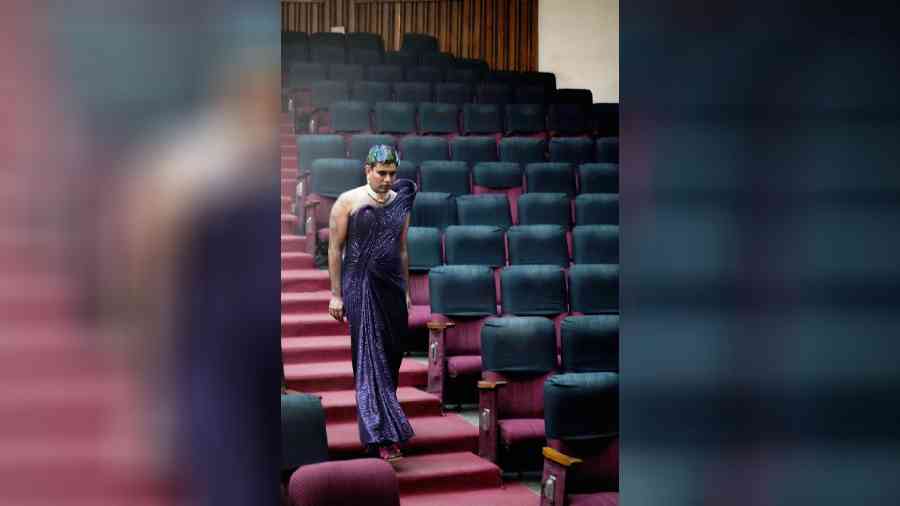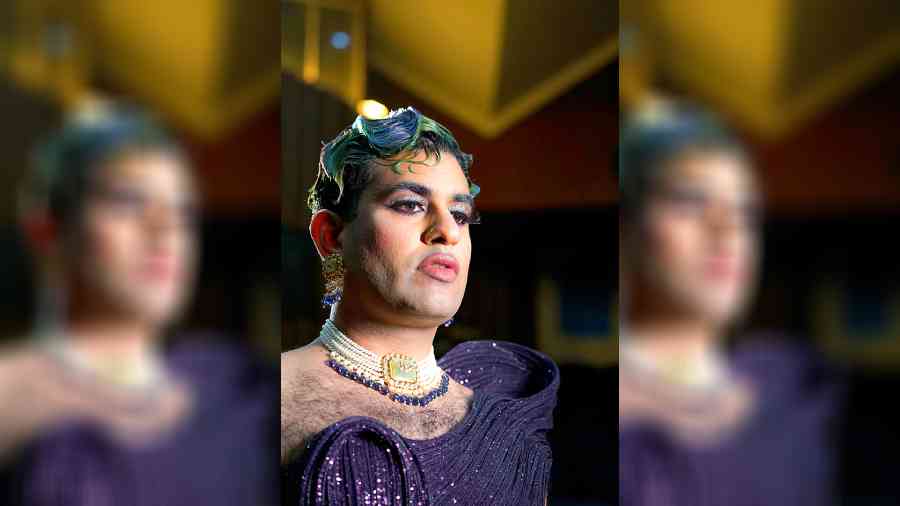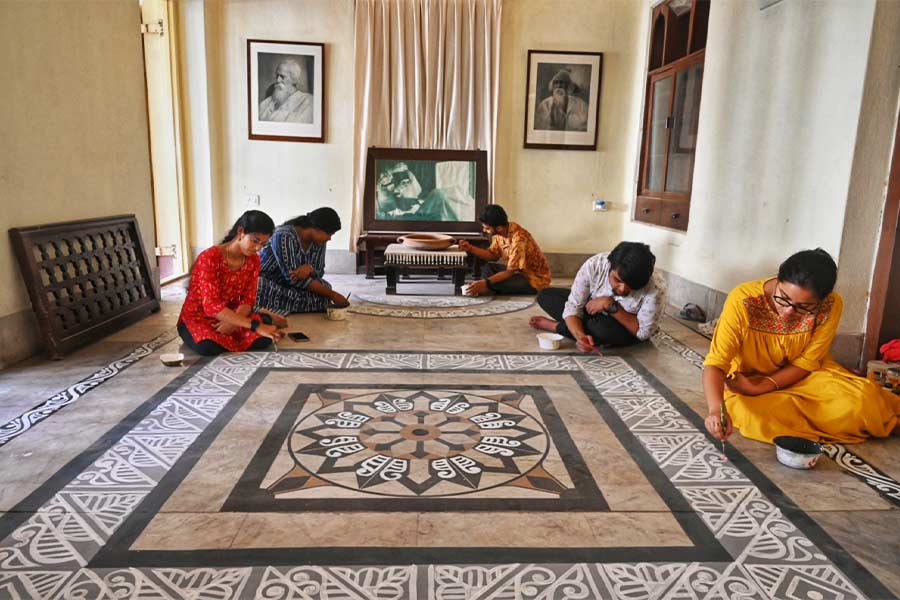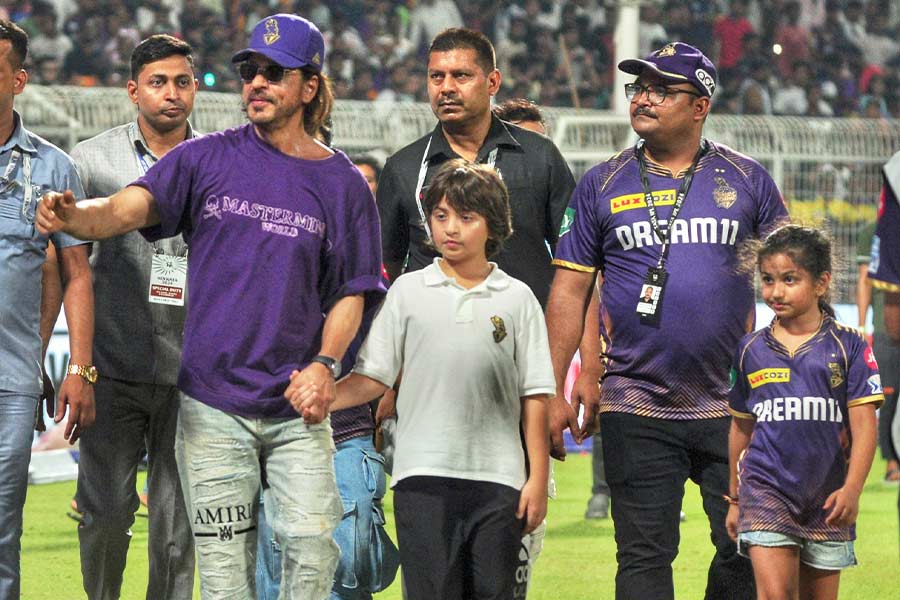Alok Vaid-Menon is multi-hyphenate. An author, poet, comedian, public speaker and passionate style champion, Alok has made fashion a powerful tool of self-expression and communication to talk about a more inclusive social space. On Alok’s latest India tour, an elegant Gaurav Gupta gown was the pick. “I’ve been coming to India since I was a young child. In the beginning, I’d mostly be visiting with family, but as an adult, I’ve established my own connections. The conversations and collaborations I’ve had with Indian artists have fundamentally shaped my practice, and my sense of self,” said Alok. A t2 exclusive chat with Alok on fashion, gender and more. Excerpts.
Other than Gaurav Gupta, how much of the Indian fashion scene have you explored?
I’ve always marvelled at the brilliance of the Indian fashion scene, and have long incorporated Indian designers in the composition of my looks. I lived in Delhi briefly in 2017 and became immersed in Indian fashion then as I worked with some friends to design a fashion collection of my own. Most of my collaborations and connections have been with smaller brands. Working with Gaurav was my first experience in the Indian couture space and certainly not the last!
Do you think the Indian fashion industry is inclusive enough?
While of course there have been significant strides, the Indian fashion industry (like all fashion industries across the world) has a long way to go toward meaningful inclusion to reflect body diversity.
Even in the global fashion industry, very little space has been made for gender-nonconforming people. Gender-neutral fashion is still seen as a ‘fad’, some sort of a trend. We don’t need a spin-off gender-neutral collection. What we need is the degendering of fashion and beauty industries, gender nonconforming people included year-round, not just for Pride campaigns; more expansive imagery on what it means to be a woman, to be a man, to be a person; the creation of a world where people don’t have to fear discrimination and violence for dressing as they choose. The binary gendering of fashion relies on fear–’What will people think if I dress in a way that defies what they think a man should look like?’ What if we got dressed by cultivating curiosity not fear?
How important is the relationship between fashion and gender? How has it shaped your journey over the years?
Gender norms have been, and will always be, unfashionable. Clothes have no inherent gender, they are for anyone who wants to wear them. Gendering fashion holds fashion back from its true creative potential. It’s up to individuals to decide what clothes mean to them, not industries.
In my own life, style has been a powerful and poetic vocabulary of self-expression. It’s been a crucial component of my artistic practice. I don’t get dressed for other people, I get dressed for myself. It’s a personal ritual of self-permission and self-exploration. It’s been deeply moving and healing to connect with people all across the world who share this commitment to style as artistry and who champion creativity over conformity. Through fashion, I was able to meet and collaborate with talented make-up artists and hairstylists and develop an appreciation for these art forms. I have to admit I’m pretty dreadful at doing my own glam, but I have so much respect for the rigour and artistry of it!
In the past, you spoke about how as a child you never envisioned your adulthood at all. Do you remember any moment where for the first time you could envision a life with your chosen identity?
One experience that comes to mind is moving to New York City a decade ago and meeting trans elders for the first time. Hearing their stories of struggle and beauty, gave me a sense that I was part of a legacy. And – that I got to have a future.
Was it a feeling of courage, fear or strength? How do you look back at it?
It was and continues to be, all of these feelings at the same time. These are not ‘competing’ or ‘contradictory,’ they are in conversation with each other. When I look in the mirror and see who I have become: I cannot tell whether to laugh or to weep. There is elation because I’m living to the fullest extent of myself. Melancholy because it has been so painful to get here.
You call fashion your first language…
Before I had the words to describe who I was and my point of view in the world, I had clothing. Clothing was how I disrupted people’s ideas of who I should be and where I was supposed to belong. I styled outfits to say: ‘This is who I am on my own terms.’ To say: ‘My body belongs to me.’ Intimate and profound lessons that helped me claim space in the world. I couldn’t control the things that were happening around me, but I could control whether or not I tucked in my shirt, or cuffed a pant leg. That intimate sense of sovereignty birthed so much possibility in me.
I think so often we are taught that fashion is about dressing up for other people, but I began to dress up for myself. To remind myself to be amazed by the world: its idiosyncrasies, its dissonant harmonies. Power clashing wasn’t just an aesthetic, it was a way of observing the world. That everything goes along together -- if you take the time to notice it.
Fashion is one of the registers I communicate with. Styling an outfit feels like writing a poem or crafting a joke. They’re all practices of beauty, vocabularies of love. It took a long time for me to be able to see clothing as part of a creative practice, not a departure from it.
Sometimes fashion can feel so commercial like it loses touch with the joy and worldmaking possibility of it and becomes so focused on selling products. I have to continually ground myself in what clothing means to me, and who shares in this vision.

How much do you think fashion has a role to play in changing the mindset?
We have been inundated with particular images of what it means to be a ‘man’ and ‘woman’ and ‘beautiful.’ Fashion allows us to expand these images, and offer more realms of possibility. Images speak and resonate at a different, and sometimes deeper place, than language. I don’t want to overstate the importance of fashion, but I also don’t want to underestimate it.
Fashion is not just a runway for you. You experience it as a part of your everyday life. What is the role of social media in this self-expression?
Oh yeah, I definitely don’t just get dressed up for events. People always ask me, ‘What are you dressed up for?’ To which I respond: ‘Being alive!’ The cool thing about social media is that I get to keep up with people using fashion as a creative vocabulary all around the world. I get to be inspired by their courage and their practice of self-making. It makes me feel like part of something greater than myself.
What is beauty to you? Do you remember the moment of feeling consciously beautiful for the first time?
Beauty is about being yourself. It’s less about how we look, and more about how we feel. As a teenager, I started to develop my own distinct sense of style. I felt like I didn’t have control over my life, and fashion became one of the first places I could express myself on my own terms. The elation that came from that -- from self-discovery and creative self-expression – that’s beauty.
You are a versatile stylista. What is style to you and how would you define your style statement?
Style is a joy-making practice. It’s about bringing beauty to a world that can so often feel banal. It’s about self-celebration, an immediate reminder of how lucky we are to be alive (and not merely existing). My style is about that: liveliness.
It is 2023 and people still find it difficult to accept hair on the body or gender-neutral styling…
It can be frustrating. I’ve accomplished so much and made art that I’m proud of, yet I am still continually reduced to my body. Most people don’t even engage with my actual work. I try to remind myself that I’m up against centuries of priming that have made people harbour shame about themselves. Compulsory body hair removal has become so normalised when really it should be up to the individual. A natural feature of our bodies has been made to view as unhygienic and wrong. I’m interested in re-imagining it, shifting the modes of perception– body hair can be seen as elegant lace, our bodies writing love letters to ourselves in cursive—biological artistry.
What is that one thing you would want to communicate to people in the fashion industry who are working behind the scenes?
Please never forget the power of fashion to shift culture and expand our imagination. Don’t lose touch with the stakes of this. Harness fashion for growth and transformation.
When you turned 30, you said you finally have clarity about yourself. Now can you envision a future that your younger self couldn’t?
It’s honestly such a relief. I feel like I’ve returned home in myself. I feel like I am truly having the time of my life. I spent so much of my life wanting to be understood, wanting to be liked. So much of my sense of self was incumbent on other peoples’ appraisal. And now I know there are so many more worthy pursuits than being liked. Like being.






